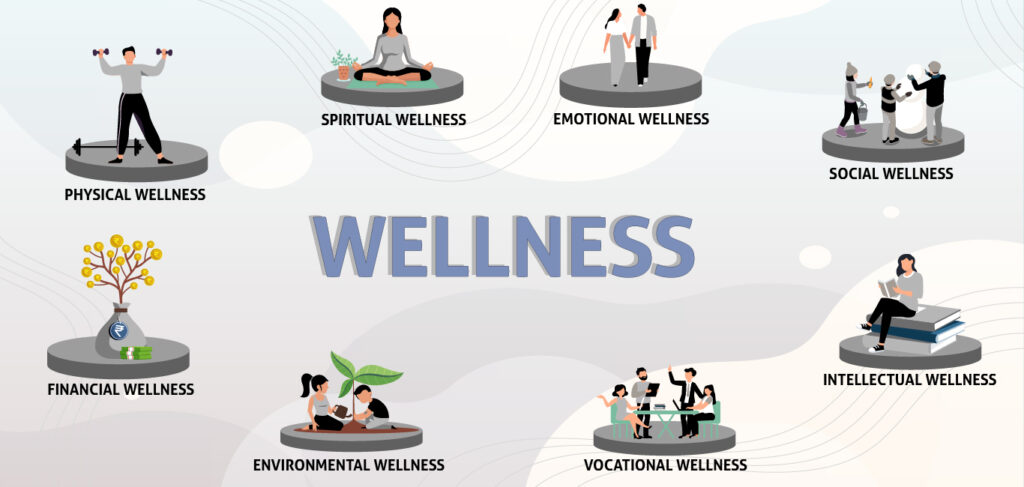The Holistic Approach
Integrating Mind, Body, and Spirit for Wellness
In a world increasingly focused on specialized treatments and quick fixes, the holistic approach to wellness offers a refreshing perspective. This approach recognizes the interconnectedness of the mind, body, and spirit, emphasizing that true health and well-being arise from a balance among all three. By integrating these aspects, individuals can cultivate a more profound sense of wellness that transcends mere absence of illness. Here’s a closer look at the holistic approach and its benefits for overall well-being.
Understanding Holistic Wellness
Holistic wellness is based on the idea that every aspect of a person’s life influences their health. It encompasses physical health, emotional well-being, mental clarity, and spiritual fulfillment. Instead of treating symptoms in isolation, the holistic approach seeks to understand the root causes of issues and promote overall harmony. This perspective encourages individuals to look at their lifestyle, relationships, environment, and inner thoughts as integral components of their health.
The Mind-Body Connection

Mental Health and Physical Wellness
The connection between mental and physical health is well-documented. Stress, anxiety, and negative emotions can manifest as physical ailments, while a healthy body can enhance mental clarity and emotional resilience. Practices such as mindfulness, meditation, and yoga have been shown to reduce stress and improve mental health, highlighting the importance of nurturing both the mind and body.
Mindfulness and Awareness
Mindfulness practices encourage individuals to become aware of their thoughts, feelings, and bodily sensations. This awareness fosters a deeper understanding of oneself, promoting emotional intelligence and resilience. By learning to observe rather than react to negative thoughts, individuals can cultivate a more positive mindset, enhancing overall well-being.
Nourishing the Body
Balanced Nutrition
Physical health is foundational to holistic wellness. A balanced diet rich in whole foods—fruits, vegetables, whole grains, lean proteins, and healthy fats—provides the nutrients necessary for optimal functioning. Nutrition impacts not just physical health but also mood and energy levels, reinforcing the mind-body connection.
Regular Exercise
Engaging in regular physical activity is crucial for maintaining physical health. Exercise releases endorphins, which boost mood and reduce stress. Whether through walking, dancing, yoga, or weight training, finding an enjoyable form of exercise can enhance physical fitness and mental clarity, contributing to a holistic sense of wellness.
Nurturing the Spirit
Spiritual Awareness
Spiritual wellness is often overlooked, yet it plays a critical role in overall health. This aspect of wellness is not necessarily tied to religion; rather, it encompasses a sense of purpose, connection, and meaning in life. Activities such as meditation, prayer, spending time in nature, or engaging in creative pursuits can foster spiritual growth and fulfillment.
Community and Connection
Building strong relationships and engaging with a supportive community are vital for spiritual wellness. Connection with others provides emotional support, reduces feelings of isolation, and fosters a sense of belonging. Participating in group activities, volunteering, or joining clubs can enhance social bonds and contribute to spiritual well-being.
Integrating Mind, Body, and Spirit
The true essence of holistic wellness lies in the integration of mind, body, and spirit. Here are some strategies to create harmony among these elements:
1. Practice Mindfulness Daily
Incorporate mindfulness techniques such as meditation, deep breathing, or journaling into your daily routine. This practice promotes self-awareness and reduces stress.
2. Create a Balanced Diet
Focus on nutrition by preparing meals that nourish your body. Experiment with new recipes that include a variety of whole foods.
3. Engage in Physical Activity
Find a form of exercise that you enjoy and make it a regular part of your life. This will enhance both physical health and mental well-being.
4. Connect with Others
Nurture your relationships and seek out community activities. Surrounding yourself with supportive individuals fosters emotional and spiritual growth.
5. Reflect on Your Values
Take time to explore what gives your life meaning. Engage in activities that align with your values and passions, enhancing your spiritual connection.
Conclusion
The holistic approach to wellness is a powerful framework for achieving overall health and fulfillment. By integrating mind, body, and spirit, individuals can cultivate a balanced and harmonious life. Embracing this approach not only promotes physical health but also enhances emotional resilience and spiritual fulfillment, leading to a more vibrant and satisfying existence. In a fast-paced world, taking the time to nurture all aspects of oneself is not just beneficial; it is essential for a truly well-lived life.
